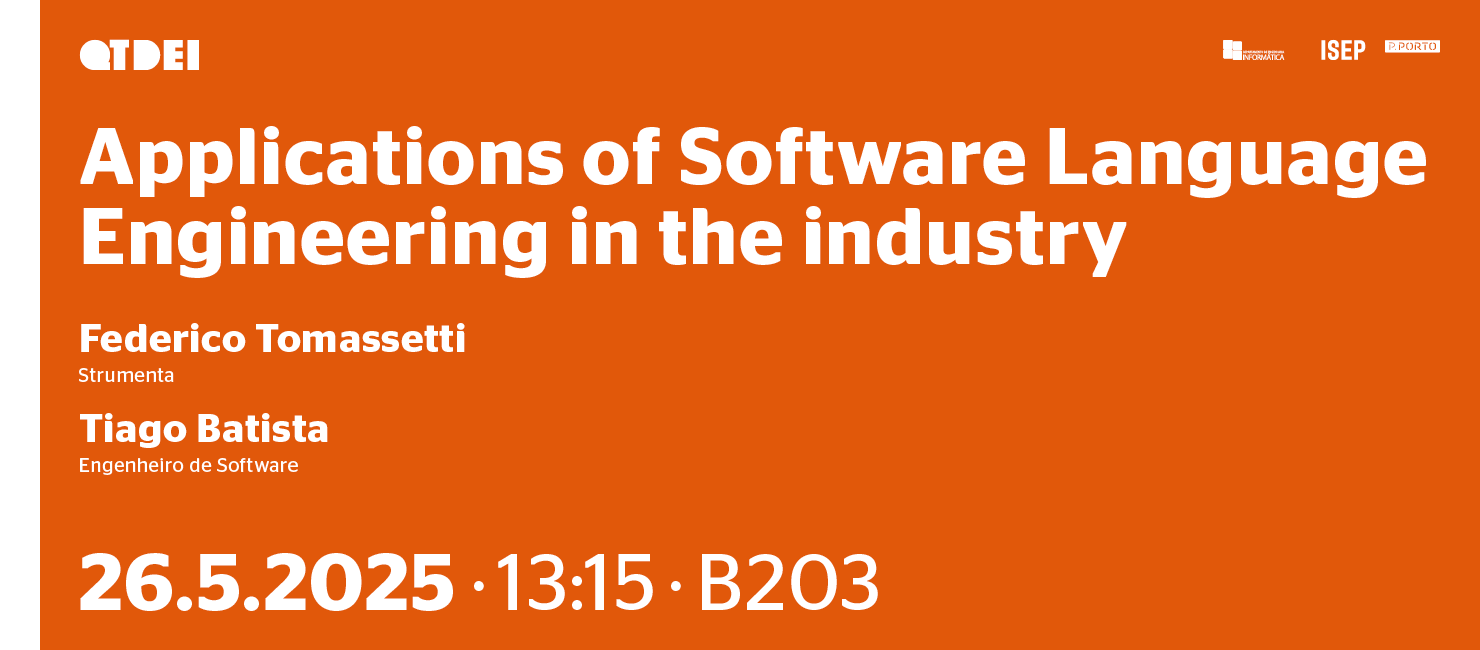
The Department of Computer Engineering (DEI) of Instituto Superior de Engenharia do Porto (ISEP), invites to participate in the lecture "Applications of Software Language Engineering in the industry", which will take place on May 26th, at 1:15 p.m., in room B203. The session will also have online streaming, which can be accessed here.
Abstract
In this talk, we introduce the field of Language Engineering, explaining its core components: parsers, interpreters, and transpilers—and how they are used to analyze, transform, and translate source code. We explore the role of parsing (from lexical analysis to AST construction), clarify the difference between interpreters and compilers, and focus on transpilers as powerful tools to convert code across languages—such as from COBOL to Elixir.
Drawing from Strumenta’s experience, we present our Chisel Method, a systematic approach for crafting robust language tools, and show how our open-source ecosystem, including starlasu-tools, supports projects ranging from DSL creation to legacy system modernization.
We conclude by discussing emerging trends in the field, including the use of AI to enhance code transformation, and how these innovations are shaping the future of software modernization.
(+INFO)
Bio
Federico Tomassetti is the founder of Strumenta, a company specializing in software language engineering. At Strumenta, he helps organizations modernize and transform their software assets by designing domain-specific languages, transpilers, interpreters, editors, and parsers. His work includes deep expertise in legacy code processing, particularly in languages like RPG, COBOL, and SAS. Federico holds a PhD in Software Language Engineering and has extensive experience in building tooling for understanding, refactoring, and migrating complex codebases. He is a frequent speaker at international conferences, sharing insights on how language engineering can drive software modernization.
Tiago Batista is a Software Engineer holding a Master’s degree in Formal Methods and Language Processing who worked as a full stack engineer for various companies in Portugal, in the geography and cybersecurity fields.
Additionally, collaborated with the University of Minho over the last four years as an Invited Assistant, teaching courses in Language Processing and Grammatical Engineering. At present, is following his primary interests as a Language Engineer at Strumenta, where works with parsers and transpilers.
(+INFO)
Organization
This lecture is organized by QTDEI, in collaboration with the Department of Computer Engineering (DEI) of the Engineering Institute of Porto (ISEP).


































